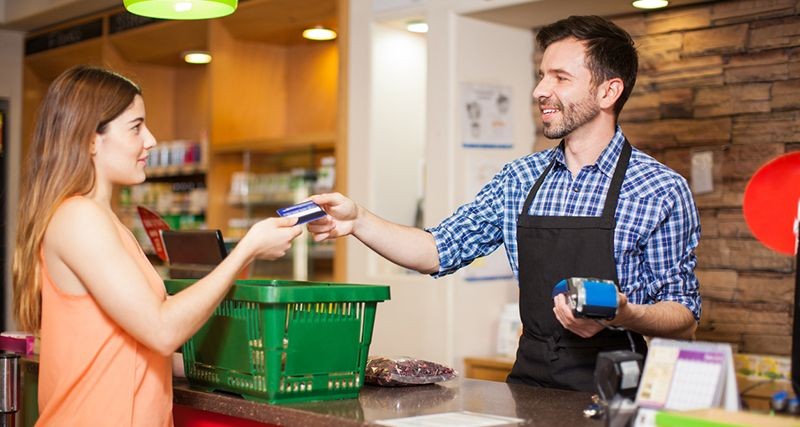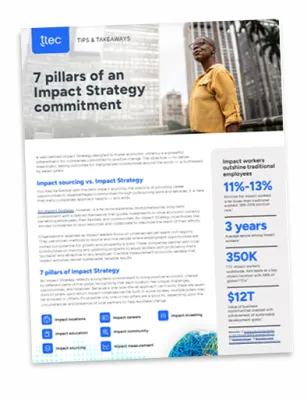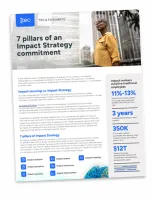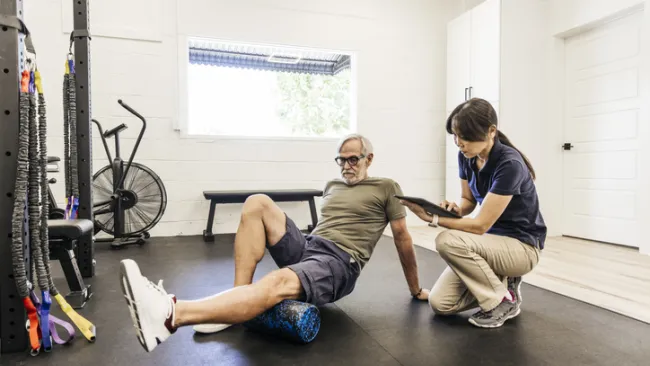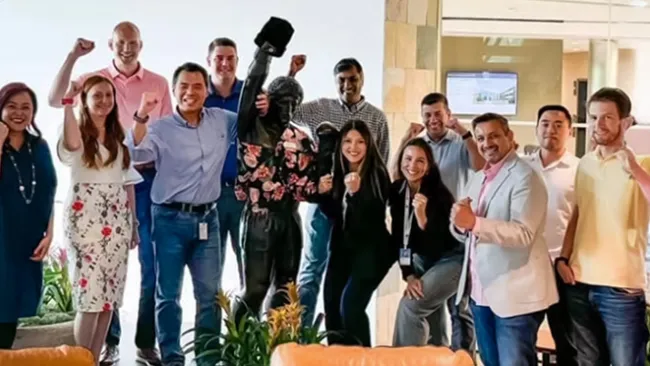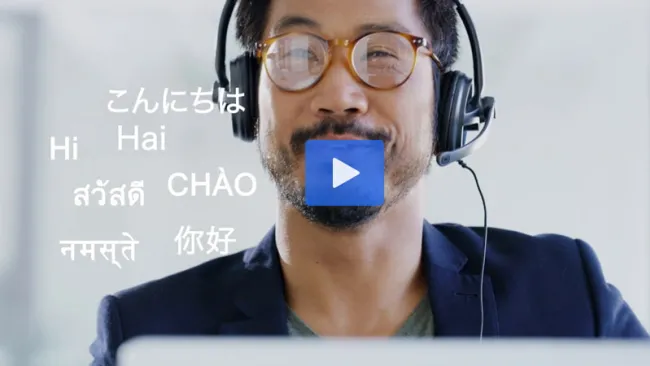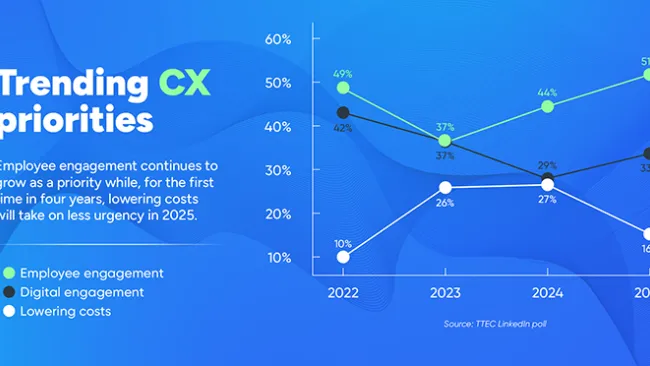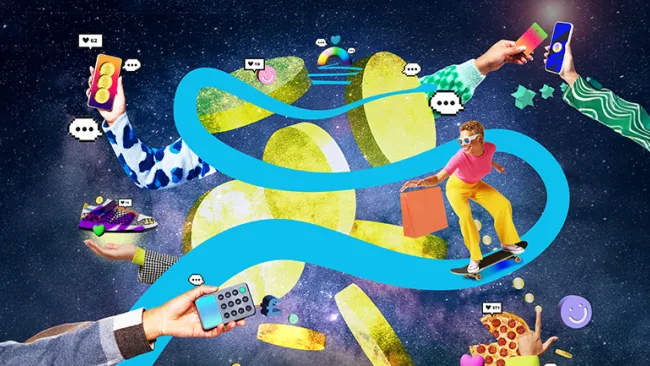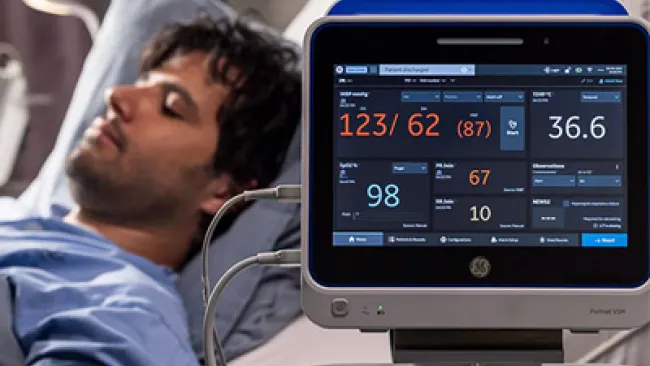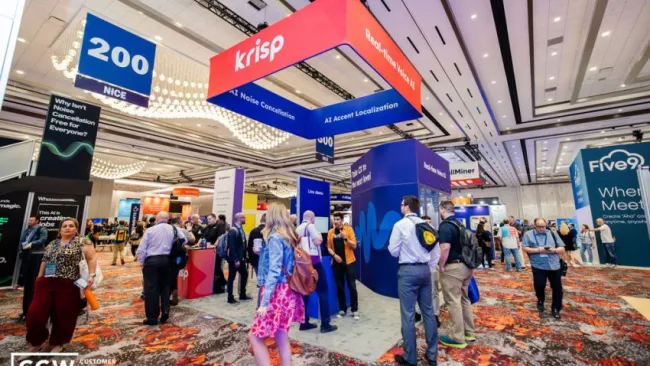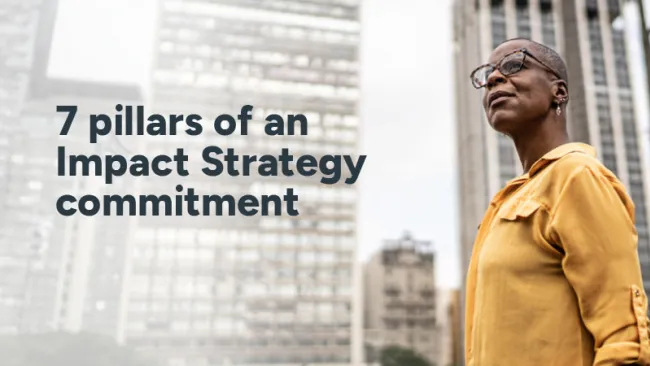An organization’s brand is one of its most important assets; it differentiates the company in the marketplace and helps ensure consistent customer experiences. But the brand promise is not delivered solely through the product or service—it’s also reflected in the behavior of employees who represent the brand.
The notion that employees at successful companies uphold the company’s brand promise—i.e., live the brand—is not new, but only a handful of companies have gotten it right. Here’s how Southwest Airlines and Trader Joe’s have created unique strategies for helping employees become active advocates who live the brand promise, even when it’s unexpected.
Trader Joe’s
Grocery chain Trader Joe’s has built a devoted customer base by not only offering a great product mix, but also by fostering a strong customer-centric atmosphere. Great customer service is baked into its brand promise.
The company’s mission is to “give our customers the best food and beverage values that they can find anywhere and…we provide these with a dedication to the highest quality of customer satisfaction delivered with a sense of warmth, friendliness, fun, individual pride, and company spirit.”
Trader Joe’s helps employees uphold its brand promise through strategic hiring and training practices. Employees are hired based on their ability to operate as part of a close-knit and collaborative team. Similar to Disney, which calls its employees “cast members,” Trader Joe’s employees are known as “crew members.” The term highlights the notion that all employees work together on the same ship. Furthermore, the crew members are capable of performing a wide variety of tasks; every employee is reportedly trained in stocking shelves, operating the cash registers, and building displays.
Crew members also have ample autonomy to make their own decisions. Here’s an example that encapsulates the uniqueness of Trader Joe’s employees. I had bought glucosamine tablets from my local Trader Joe’s to ease the pain in my dog’s hips. Unfortunately, soon afterwards, we had to put my dog to sleep. I eventually went to Trader Joe’s to return the unused box of tablets.
I asked one of the employees where the return counter was. I explained to him that I was returning the tablets because we had to put my dog to sleep. He expressed his sympathy and showed me where I could return the box. A few minutes later, while I was doing my shopping, he walked up to me and handed me a bouquet of flowers. He said, “I just wanted to tell you how sorry I am that you lost your dog.” That is Trader Joe’s. It’s a no-frills brand where the employees will go out of their way to treat customers with kindness—even when they don’t have to.
Southwest Airlines
Southwest Airlines co-founder and former CEO Herb Kelleher was known for reminding employees that they are in the service business, and it’s incidental that the company is an airline. This sentiment is reflected in the company’s mission statement, which is “dedication to the highest quality of customer service delivered with a sense of warmth, friendliness, individual pride, and company spirit.”
The company’s focus on hiring the right employees plays an important role in helping the company fulfill its mission. Southwest Airlines takes into consideration a potential employee’s overall attitude in addition to the candidate’s skills. In fact, the airline’s recruitment process is geared toward finding candidates who exude warmth, friendliness, and company spirit.
But Southwest leaders understand that it’s important for employees to also feel supported and motivated. “We still believe that we are in the people business, and it’s our people that make the culture so strong,” said CEO Gary Kelly to The Huffington Post. At the time this article was written, there has never been a layoff or pay cut at Southwest.
Additionally, Kelly gives a weekly shout out to employees who have gone out of their way to provide great customer service. And every month, Southwest: The Magazine features an employee who has provided exceptional customer service, in addition to highlighting positive behaviors through a variety of recognition programs and awards. The company also produces customer testimonials as corporate videos to further inspire employees to provide great service.
These practices form an important part of the airline’s customer experience strategy. Employees who feel appreciated for their efforts are more likely to provide great service. And the results are evident. As someone who travels on a nearly weekly basis, the people I interact with at Southwest are always friendly and really seem to believe that their job is not just to get passengers from point A to point B, but to also put a smile on their faces. Furthermore, Southwest Airlines is consistently ranked among the top customer-focused airlines and companies.
There’s a lot that other leaders can learn from Southwest Airlines and Trader Joe’s on how to help their employees live up to the brand promise. Here are three lessons that every organization can learn from.
1. Hire for cultural fit
The goal is to identify and hire the best candidates whose skills and attributes match the organization’s core values. Possessing the right skills is only part of the equation. It is also important for candidates to fit the company’s culture. As a customer-centric company, Trader Joe’s emphasizes the importance of having an engaging personality.
In fact, the company’s profile on the job-search engine Monster includes the following questions: “Are you an upbeat, outgoing individual motivated by challenges, who enjoys working with an educated, eclectic team? Do you have a good sense of humor and a strong customer orientation? If you answered yes to these questions, we might have a fit!”
Southwest Airlines also looks for candidates who are a cultural fit, in addition to being experienced. “We will not hire a person who isn’t friendly but has been in the industry for 20 years,” Teresa Laraba, senior vice president of customers for Southwest Airlines, said in an interview.
2. Give employees autonomy (with guidelines)
Trader Joe’s and Southwest Airlines both understand that employee autonomy can enhance job performance and job satisfaction in addition to providing a more authentic customer
experience. Both companies give employees the authority to decide how best to solve a problem or engage customers. A Southwest pilot, for example, famously had pizza delivered to passengers when their plane was temporarily grounded because of weather conditions.
In its job ads, Trader Joe’s informs candidates that it celebrates “individual style, creative ideas, and initiative.” Employees are encouraged to make personal recommendations to customers and are allowed to open the packaging of any products customers wish to sample. Moreover, employees are even encouraged to email vendors directly with product suggestions and feedback.
3. Fix errors as quickly as possible
Southwest’s customer service department strives to answer consumer concerns and requests quickly and efficiently. Shep Hyken, a customer service expert and author, shared an example of Southwest’s approach to fixing errors.
When collecting his daughter’s luggage from baggage claim, Hyken noticed that the handle was broken. He brought the suitcase to Southwest’s customer service office. He was offered the option to fill out paperwork to file a claim for repairs, or replace the suitcase with a brand new one on the spot.
Hyken chose the latter and was led into a room containing new suitcases where his daughter was able to choose a replacement. Hyken described the experience as “a moment of magic.” One might ask why Southwest wasn’t treating its passengers’ luggage with more care, but regardless, the company chose to take the extra step to offer a replacement when other companies might have simply issued an apology and a voucher.
At Trader Joe’s, customers are allowed to return anything they’ve purchased, including half-eaten items. “Just bring back whatever you haven’t eaten and we’ll refund your money, no questions asked,” writes the company on its website. “It might sound like a food-lover’s fantasy, but for us it’s just the way we do business.”
It’s no wonder that Southwest Airlines and Trader Joe’s are considered disrupters in their respective industries. Both companies have created formulas for delivering superior customer experiences that are driven by dedicated staff members who, in turn, are supported by their employers. Other organizations have a choice: emulate and learn from these models of organizational success or stick to the status quo. The choice should be obvious.
